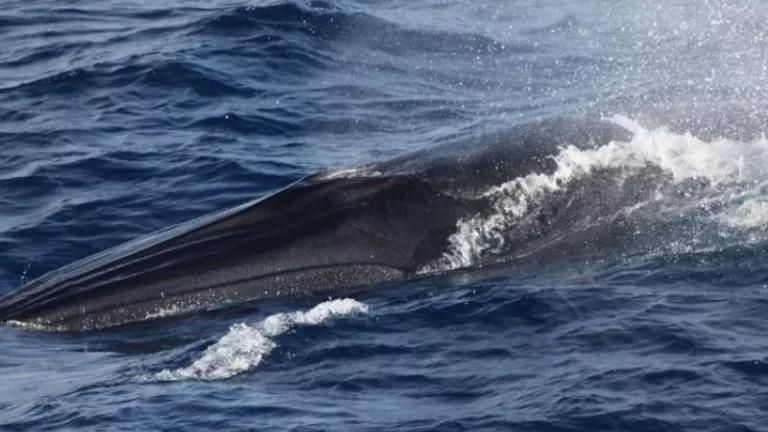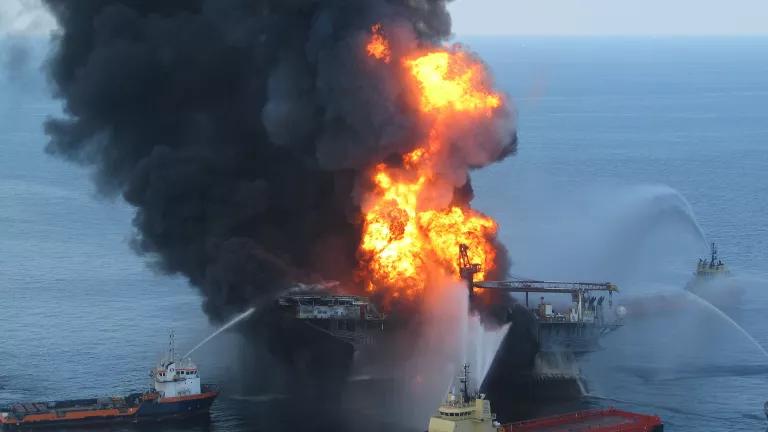Where Does Your Member of Congress Stand on Offshore Drilling?
NRDC has updated our digital tool to track where members of Congress stand on offshore oil and gas drilling.

NRDC's offshore drilling tracker
As summer winds down, so many across the nation return to fall with fond memories of visiting the country’s beaches and coastlines. All of us prize these special areas that support billions in local tourism and fishing economies, act as sanctuaries for wildlife, and have provided lasting beauty for generations.
Yet coastal communities in the Gulf of Mexico and Alaska face the prospect of another massive oil spill off their shores in years to come. This fall, the Biden Administration will release a plan for the next five years of offshore oil and gas leasing.
NRDC is working to keep these special places safe from encroachment by polluters who want to industrialize our coastlines for oil and gas exploration and production. As the Gulf coast knows all too well, risky offshore drilling irreparably harms our coastal communities. Devastating oil spills, exposure to oil and gas emissions - all of this is linked to serious health consequences for nearby communities. Gulf communities have borne the brunt of fallout of US oil drilling. We must invest, instead, in a just transition for people of the Gulf to obtain sustainable, good-paying jobs.
You may oppose drilling, but does your member of Congress?
Public polling echoes what we already know - most people, across the political spectrum, don’t want more dirty and dangerous offshore oil and gas drilling. And as representatives of the public, Congress has a key role in the making decisions about future of our energy sources and the health of our oceans. More offshore oil and gas leasing means more pollution in our air and waters and puts our coasts, communities, and marine life at risk of another major oil spill. It means making the climate crisis worse, and locking in the country’s dependence on fossil fuels for decades to come
NRDC's new tool let’s you check out where your state’s delegation stands on new offshore oil and gas drilling. Some regions—like New England—have rejected drilling top to bottom. Other delegations—like those in Florida —have had a more mixed response.
Some elected officials are calling on President Biden to end new offshore drilling across the board. Others object only to drilling along their state’s borders. Still others push for more of our ocean to be sold to Big Oil.
Why does this matter? Offshore drilling anywhere is bad for families everywhere. It’s not enough to reject drilling locally.
Drilling brings with it catastrophic risks of oil spills and dangerous carbon pollution. That threatens all of us, whether we live in South Carolina, Montana, Alaska, New Mexico, or Louisiana. Oil doesn’t stop at state boundaries. Spills can travel more than 1,000 miles, coating beaches, ruining fisheries, and devastating local economies along the way. And the carbon pollution generated by burning oil produced offshore contributes to dangerous climate disruption everywhere. This exacerbates extreme weather events—from flooding and rising sea levels to hurricanes and heat waves—that Americans in every state are experiencing to an unprecedented extent.
We must protect all of our oceans for all Americans. If our elected officials are serious about addressing climate change, protecting communities, local economies, and their region’s whole way of life, they are going to have to join together and say no to new offshore oil and gas drilling.
Here are three things you can do to help protect our coasts:
- If you live on the coast, find your member of Congress to see where they stand on offshore drilling. Urge them to tell the administration to put our coasts and the public good before polluter profits—and reject expanded drilling everywhere.
- If you live inland, this matters to you, too! None of us—Coloradans, Nevadans, Ohioans—should have to suffer increased impacts of climate change and lose the chance to experience our nation’s still unspoiled coasts.
- Attend your elected officials’ town halls and public events and ask them to oppose offshore drilling—off your beach, off your state, in your region, everywhere.
Standing together, we can protect our coast, address the climate crisis, and protect our communities.




